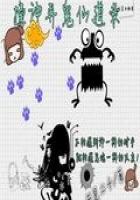Mrs.Dyott, left alone, moved with an air of selection to the window, and it was as so stationed, gazing out at the wild weather, that the visitor, whose delay to appear spoke of the wiping of boots and the disposal of drenched mackintosh and cap, finally found her.He was tall lean fine, with little in him, on the whole, to confirm the titular in the "Colonel Voyt" by which he was announced.But he had left the army, so that his reputation for gallantry mainly depended now on his fighting Liberalism in the House of Commons.Even these facts, however, his aspect scantily matched; partly, no doubt, because he looked, as was usually said, un-English.His black hair, cropped close, was lightly powdered with silver, and his dense glossy beard, that of an emir or a caliph, and grown for civil reasons, repeated its handsome colour and its somewhat foreign effect.His nose had a strong and shapely arch, and the dark grey of his eyes was tinted with blue.It had been said of him--in relation to these signs--that he would have struck you as a Jew had he not, in spite of his nose, struck you so much as an Irishman.Neither responsibility could in fact have been fixed upon him, and just now, at all events, he was only a pleasant weather-washed wind-battered Briton, who brought in from a struggle with the elements that he appeared quite to have enjoyed a certain amount of unremoved mud and an unusual quantity of easy expression.It was exactly the silence ensuing on the retreat of the servant and the closed door that marked between him and his hostess the degree of this ease.They met, as it were, twice: the first time while the servant was there and the second as soon as he was not.The difference was great between the two encounters, though we must add in justice to the second that its marks were at first mainly negative.This communion consisted only in their having drawn each other for a minute as close as possible--as possible, that is, with no help but the full clasp of hands.Thus they were mutually held, and the closeness was at any rate such that, for a little, though it took account of dangers, it did without words.When words presently came the pair were talking by the fire and she had rung for tea.He had by this time asked if the note he had despatched to her after breakfast had been safely delivered.
"Yes, before luncheon.But I'm always in a state when--except for some extraordinary reason--you send such things by hand.I knew, without it, that you had come.It never fails.I'm sure when you're there--I'm sure when you're not."He wiped, before the glass, his wet moustache."I see.But this morning I had an impulse.""It was beautiful.But they make me as uneasy, sometimes, your impulses, as if they were calculations; make me wonder what you have in reserve.""Because when small children are too awfully good they die? Well, I AM a small child compared to you--but I'm not dead yet.I cling to life."He had covered her with his smile, but she continued grave."I'm not half so much afraid when you're nasty.""Thank you! What then did you do," he asked, "with my note?""You deserve that I should have spread it out on my dressing-table--or left it, better still, in Maud Blessingbourne's room."He wondered while he laughed."Oh but what does SHE deserve?"It was her gravity that continued to answer."Yes--it would probably kill her.""She believes so in you?"
"She believes so in YOU.So don't be TOO nice to her."He was still looking, in the chimney-glass, at the state of his beard--brushing from it, with his handkerchief, the traces of wind and wet."If she also then prefers me when I'm nasty it seems to me I ought to satisfy her.Shall I now at any rate see her?""She's so like a pea on a pan over the possibility of it that she's pulling herself together in her room.""Oh then we must try and keep her together.But why, graceful tender, pretty too--quite or almost as she is --doesn't she re-marry?"
Mrs.Dyott appeared--and as if the first time--to look for the reason."Because she likes too many men."It kept up his spirits."And how many MAY a lady like--?""In order not to like any of them too much? Ah that, you know, Inever found out--and it's too late now.When," she presently pursued, "did you last see her?"He really had to think."Would it have been since last November or so?--somewhere or other where we spent three days.""Oh at Surredge? I know all about that.I thought you also met afterwards."He had again to recall."So we did! Wouldn't it have been somewhere at Christmas? But it wasn't by arrangement!" he laughed, giving with his forefinger a little pleasant nick to his hostess's chin.Then as if something in the way she received this attention put him back to his question of a moment before: "Have you kept my note?"She held him with her pretty eyes."Do you want it back?""Ah don't speak as if I did take things--!"She dropped her gaze to the fire."No, you don't; not even the hard things a really generous nature often would." She quitted, however, as if to forget that, the chimney-place."I put it THERE!""You've burnt it? Good!" It made him easier, but he noticed the next moment on a table the lemon-coloured volume left there by Mrs.
Blessingbourne, and, taking it up for a look, immediately put it down."You might while you were about it have burnt that too.""You've read it?"
"Dear yes.And you?"
"No," said Mrs.Dyott; "it wasn't for me Maud brought it."It pulled her visitor up."Mrs.Blessingbourne brought it?""For such a day as this." But she wondered."How you look! Is it so awful?""Oh like his others." Something had occurred to him; his thought was already far."Does she know?""Know what?"
"Why anything."
But the door opened too soon for Mrs.Dyott, who could only murmur quickly--"Take care!"















